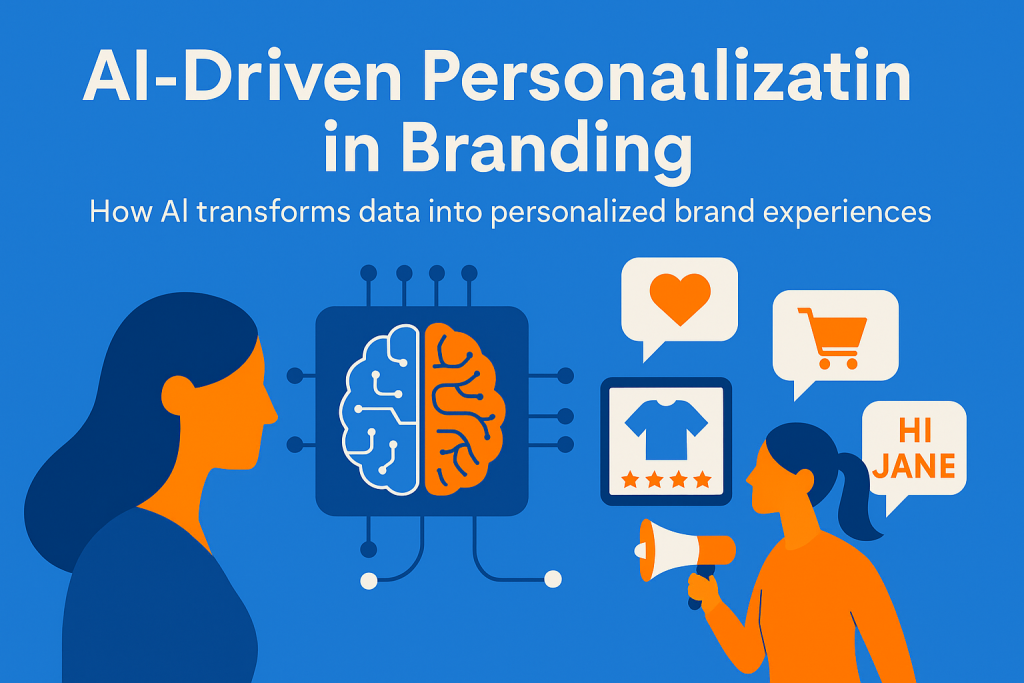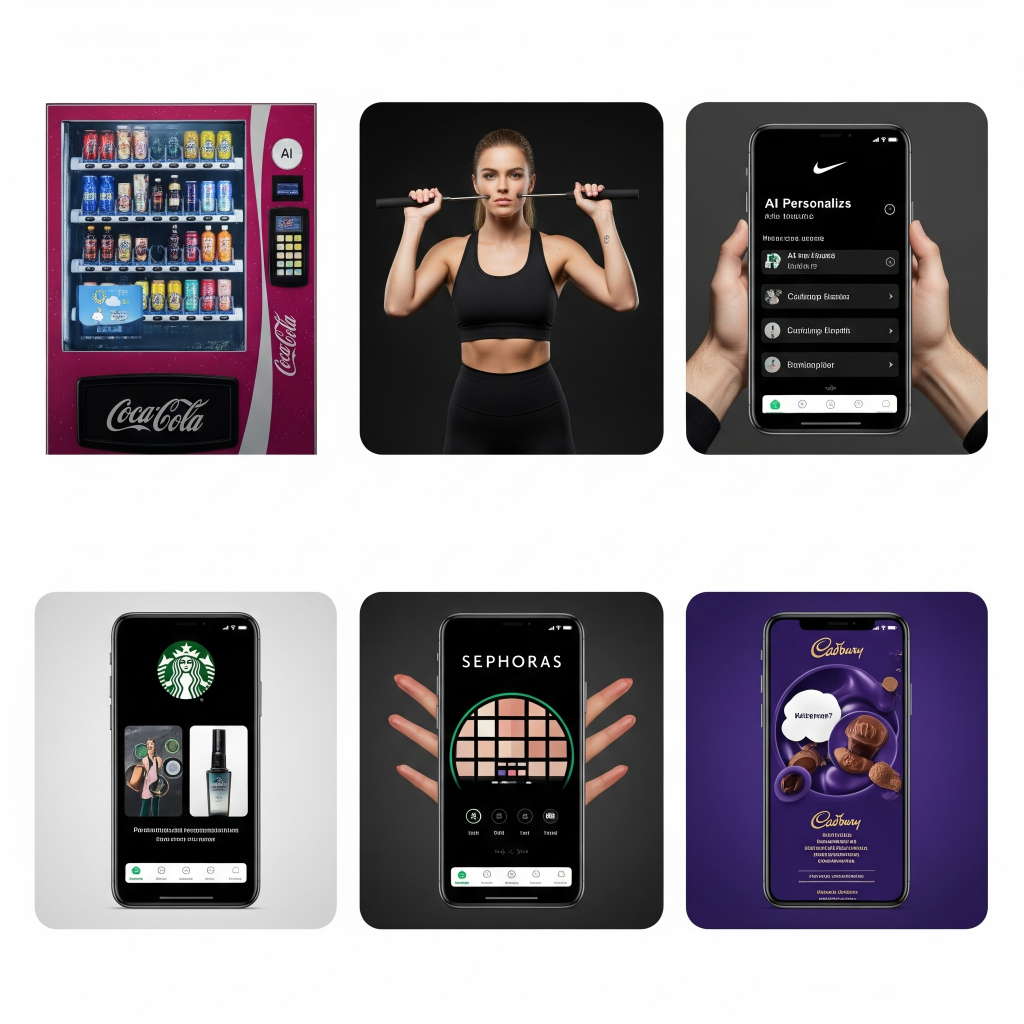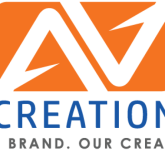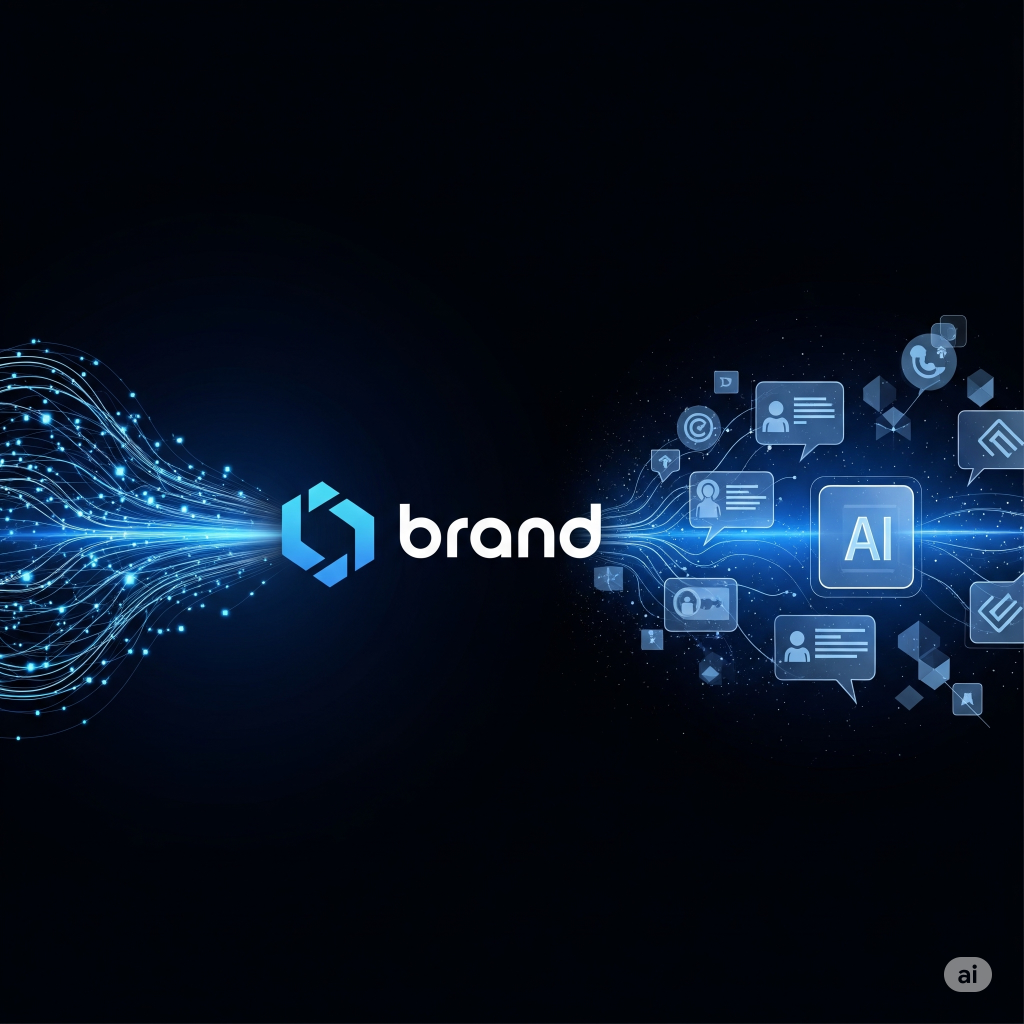AI-Powered Customization in Branding: The Prospect of Deeply Meaningful Relationships
AI-powered customization in branding has become a game-changer in an era where consumers demand relevance and authenticity. Offering a good product is no longer enough—brands must now deliver experiences tailored to each customer’s unique needs. By transforming unstructured data into meaningful brand interactions, AI enables businesses to create deeper, more personalized connections, artificial intelligence (AI) enables businesses to accomplish just that.

AI-Driven Personalization: What is It?
AI-driven personalization is the process of creating unique content, offers, and experiences for every user by utilizing machine learning algorithms and customer data, such as behavior, preferences, location, and purchase history. Creating product recommendations, user interfaces, and marketing messages that are precisely tailored to each customer’s individual profile is more important than simply addressing them by name in an email.
The Significance of It
Customers of today demand customization. 66% of consumers expect businesses to be aware of their particular needs, per a Salesforce study. AI’s ability to analyze vast amounts of data and make real-time adjustments helps close this expectation-reality gap.
Netflix, for instance, makes show recommendations based on your viewing preferences. Amazon makes product recommendations based on your browsing habits. Spotify uses your listening history to curate playlists. AI personalization powers all of these, and it keeps users coming back.
Advantages for Enhanced Customer Engagement and Branding
Personalized interactions increase the likelihood of engagement because they feel more relevant. AI is able to make timely product and content recommendations that align with a user’s intent.
Higher Rates of Conversion
Experiences that are tailored to the individual lead to increased purchase intent. When a user feels understood, they are more likely to convert.
Brand Retention & Loyalty
Customers are more likely to recommend and return to a brand that regularly delivers worthwhile, customized experiences.
Effective Marketing Expenditure
With customized campaigns, AI helps target marketing expenditures on high-intent users, increasing return on investment.
Experience That Is Scalable
AI makes it easy for brands to scale their personalization efforts across millions of users, unlike manual customization.
Examples from the Real World

- Coca-Cola employs AI in vending machines to generate personalized beverage recommendations based on consumer preferences.
- AI is used by Nike’s mobile app to suggest shoes based on athletic objectives and foot scans.
- Sephora recommends beauty products based on skin tone and past purchases using AI chatbots and augmented reality.
- Starbucks uses artificial intelligence (AI) in its mobile app to recommend orders based on user history and the time of day.
- Cadbury started a campaign that allowed users to use AI to create customized video ads based on their Facebook profiles.
Concluding remarks
AI-powered branding personalization is the way of the future, not just a fad. Businesses that use AI to create personalized experiences will stand out as competition heats up and attention spans shorten. Brands can increase conversions, cultivate loyalty, and succeed over the long run by giving each consumer a sense of being seen and understood.
Customization is not only wise, but necessary.
FAQ
Q1. What is AI-powered customization in branding?
Ans: It’s the use of AI to create personalized brand experiences based on user data.
Q2. Why is AI-driven personalization important?
Ans: It helps brands meet customer expectations for relevant and tailored experiences.
Q3. How does AI-powered customization boost engagement?
Ans: It delivers timely, personalized content that resonates with each user.
Q4. Which brands use AI personalization successfully?
Ans: Netflix, Amazon, Nike, Sephora, and Starbucks use AI to enhance customer experiences.
Q5. What is the future of branding in 2025?
Ans: Branding in 2025 focuses on hyper-personalization, AI integration, and emotional connection with consumers.

